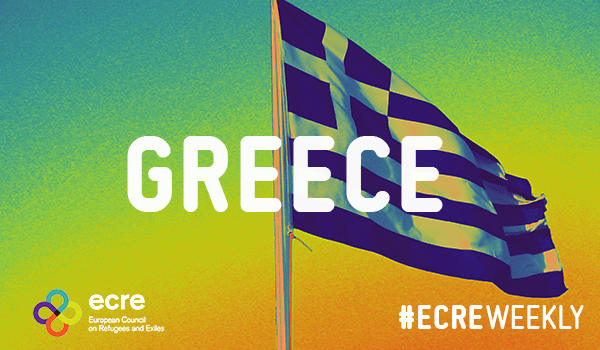With Greece facing a record winter and contrary to first-hand accounts, Secretary General of reception of Asylum Seekers, Manos Logothetis and Minister of Migration and Asylum, Notis Mitarakis report no problems in Moria 2.0. Despite mounting and conclusive evidence, Greek authorities continue to deny pushbacks. The fast-track border procedure applied on the Greek Islands continues to violate safeguards in place to protect vulnerable asylum seekers.
Across the Greek islands and mainland, camp residents are facing harsh winter adding freezing temperatures and storms to already critical conditions. Reports from Malakasa where tents are covered in snow, Elonas where some residents living in tents are being transferred to shared containers or evacuated to a local gym, and Schistos where children and vulnerable people are isolated from residential areas, confirm a chaos of power cuts, lack of heating and freezing temperatures. A recent report from Mobile Info Team confirms the continued situation of homelessness and destitution for many people sleeping rough on the Greek mainland, with winter setting in the situation is increasingly critical. In the so-called Moria 2.0 in Kara Tepe on Lesvos, the extraordinary weather with storm, hail and freezing temperatures combined with power cuts create miserable living conditions for a camp population of close to 7,000 people of which an estimated 40% are children. While media are banned from the camp allegedly due to the COVID pandemic, the circulation of images by residents and NGOs has generated questions for Greek officials. Secretary General of reception of Asylum Seekers, Manos Logothetis denied that the weather had created any problems at Moria 2.0 and that the government is working every day to improve infrastructure in camps across Greece. A statement that was confirmed by Minister of Migration and Asylum, Notis Mitarakis during a recent visit to the frozen camp. The Greek government is also downplaying the risks of lead poisoning of residents in the camp partly established on old army grounds: “Exposure to lead can cause lifelong harm, and the government should listen to environmental health experts who are advising immediate action to assess and address the full risk for residents and employees in the camp, and mitigate the harm,” said senior crisis and conflict researcher at Human Rights Watch, Belkis Wille. The government is also facing increasing local resistance to their strategy of constructing permanent closed camps across Greece mainly financed through the EU, and with an overwhelming majority the Municipal Council of Chios put a definitive end to plans of establishing a closed camp on the island.
Conclusive evidence of systematic and violent pushbacks by Greek authorities on the Aegean Sea continue to mount, with 321 incidents involving 9,798 people documented between March and December 2020 alone. However, Minister of Migration and Asylum Notis Mitarakis continues to deny the incidents, claiming that such evidence is “fake news” promoted by Turkey. However, as a joint statement by human rights organisations, including ECRE member Greek Council for Refugees (GCR), concludes: “Greece has never conducted an effective investigation regarding the numerous allegations, reports, testimonies and criminal complaints on illegal push-backs, neither at the level of the Judicial System nor at the level of Independent Authorities or mechanisms”.
According to a Joint Statement by Refugee Support Aegean (RSA), Médecins Sans Frontières (MSF) and ECRE member Pro Asyl: The fast-track border procedure as applied on the Greek Islands continues to violate safeguards that are meant to provide additional protections for vulnerable asylum seekers”. The organisations react to several cases of: “vulnerable asylum seekers being placed in the border procedure despite being survivors of violence and the significant concerns related to their wellbeing and health”.
A briefing paper by Oxfam and GCR explores the consistent failure of EU member states: “to show solidarity by not delivering on commitments to relocate people, either by refusing to participate in the first place or by not fulfilling their pledges”. By the end of 2020 only 2,050 of a modest 5,100 relocation places pledged by EU member states had materialised. Germany promised to relocate 1,553 people after the fire in Moria camp five months ago but had only taken 333 people from Lesvos by 15 February with an additional 116 following on 17 February.
For further information:
- Greece: Growing Local Tensions and Hostility Towards ECRE, Asylum Seekers and Refugees as Government Continues to Implement Permanent Camp Solutions, February 2021
- ECRE, Greece: Detainees on Hunger-strike Protesting Torture, Government to Pay Compensation for Inhumane Conditions, New Reports of Systematic Pushbacks, February 2021
Photo: ECRE
This article appeared in the ECRE Weekly Bulletin. You can subscribe to the Weekly Bulletin here.

